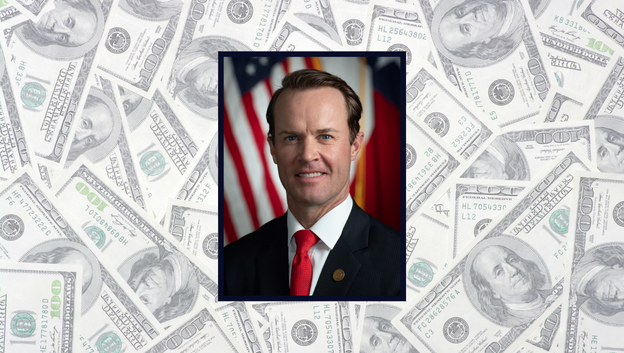
Last week, Republican Texas House Speaker Dade Phelan made headlines for his comments at the West Texas Legislative Summit in San Angelo, Texas, where he indicated that the House will take a “long, hard look” in the next legislative session at bringing back the controversial Chapter 313 tax abatement program.
He continued by saying he believed the House can pass a version of the program “that is more transparent, with more accountability and oversight.”
.@DadePhelan in San Angelo says House’ll take a “long hard look” next session at Ch. 313 corporate tax incentive program, which expires at the end of this year. He’s confident House can pass a “version of 313s that are more transparent, w/ more accountability & oversight” #txlege
— Patrick Svitek (@PatrickSvitek) August 4, 2022
In February, we reported that a potential resurrection of the program was in the works after Phelan said as much at the Texas Oil and Gas Association’s (TXOGA) annual Ad Valorem Tax Conference in San Antonio, Texas.
The #txlege continues to prioritize & work on providing property tax relief, improving the appraisal system, and developing a program to replace Chapter 313, a crucial incentive program to attract businesses to Texas. (2/2)
— Dade Phelan (@DadePhelan) February 2, 2022
You might be saying to yourself, “Didn’t the Legislature end this program?”
Brief Background
Last legislative session, lawmakers chose not to continue the program by ultimately not passing legislation seeking to do as much through the entirety of the legislative process, to the chagrin of much of the Republican legislative leadership.
The program is set to officially expire on December 31 of this year.
What is the Chapter 313 Program?
Corporate welfare, plain and simple. The program is a part of the Texas Economic Development Act and allows school districts to grant property tax abatements to businesses. Unlike similar tax abatement agreements, which have their own problems, the revenue lost by the school district is instead made up for by state taxpayers.
Since its inception, businesses have received more than $10 billion in property tax exemptions – about $1 billion annually – which instead comes from state coffers (i.e. taxpayers). For example, taxpayers in Lubbock, Texas, might be paying for a property tax abatement for a business located on the opposite side of the state.
The list of current Chapter 313 agreements can be found here.
Major Political Party of Opposition
In the recently adopted 2022 Republican Party of Texas platform, a plank exists that explicitly declares opposition to bringing back the program:
94. Property Tax Abatements: We support repealing Tax Code Chapter 312 county and municipal property tax abatements, and we oppose reintroducing school property tax abatements, formerly known as Chapter 313.
This is important because, like Phelan, the majority of lawmakers in the Texas Legislature are Republicans. In fact, Republicans have controlled the Legislature and every statewide office for nearly two decades. Will they abide by their own party’s platform?
Moreover, even the Texas Democrat Party’s platform includes language to this effect:
Prohibit “corporate welfare” incentives that pit states and communities against each other.
With both of the political parties within the state Legislature against such a policy, whose interests are really at the heart of this program?
What Does it Mean for Texas Taxpayers?
Though the program is slated to be discontinued in December of 2022, Phelan’s sentiment that the program should be replaced should concern Texas taxpayers, who are still reeling from ever-increasing property tax burdens.
Texans for Fiscal Responsibility’s position is that abatements allow large corporations and those with political influence to temporarily exempt a portion of their property’s value from taxation — a privilege not granted to Texas homeowners or the vast majority of businesses. This has become an attractive option for giant corporations seeking temporary relief from Texas’ oppressive property tax rates.
Taxpayers should not be stuck with increased tax bills in order to carry the additional burden of well-connected businesses. Instead, they should demand the Texas Legislature let these programs expire and encourage local governments to compete for business by cutting taxes and bureaucratic red tape to foster an environment of free enterprise, rather than picking winners and losers.




